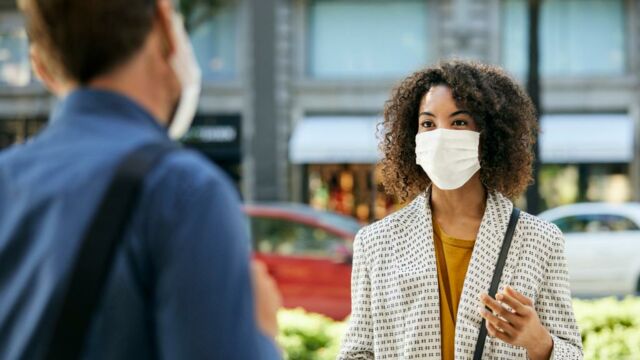Research at Cardiff University has concluded that both women and men perceive those wearing masks as more attractive. This should not come too much of a surprise as we have now been subjected to wearing face coverings for almost two years.
Discover our latest podcast
Covering the lower half of our faces makes us more attractive
What's most interesting is that in the past, anything associated with pathogens or diseases was seen as extremely unattractive. But now that we know that masks can actually save lives and prevent the spread of the coronavirus, people wearing them have become more attractive to us.
The same can be said about those who have received the vaccine versus those who refuse it. Dr Michael Lewis, professor in the School of Psychology at Cardiff University explains that:
We wanted to test whether this had changed since face coverings became ubiquitous and understand whether the type of mask had any effect. Our study suggests faces are considered most attractive when covered by medical face masks.
And added:
This may be because we're used to healthcare workers wearing blue masks and now we associate these with people in caring or medical professions. At a time when we feel vulnerable, we may find the wearing of medical masks reassuring and so feel more positive towards the wearer.
Emphasis on the eyes
What's more, the study found that the mask that respondents found the most attractive on people was the standard surgical light-blue and white masks. Theories that have emerged all point to the fact that eyes are considered to be the focal point in someone's face and covering the lower half only emphasises them even more. Dr Lewis concluded that:
The pandemic has changed our psychology in how we perceive the wearers of masks. When we see someone wearing a mask we no longer think 'that person has a disease, I need to stay away'.
Before adding:
This relates to evolutionary psychology and why we select the partners we do. Disease and evidence of disease can play a big role in mate selection - previously any cues to disease would be a big turn-off.















